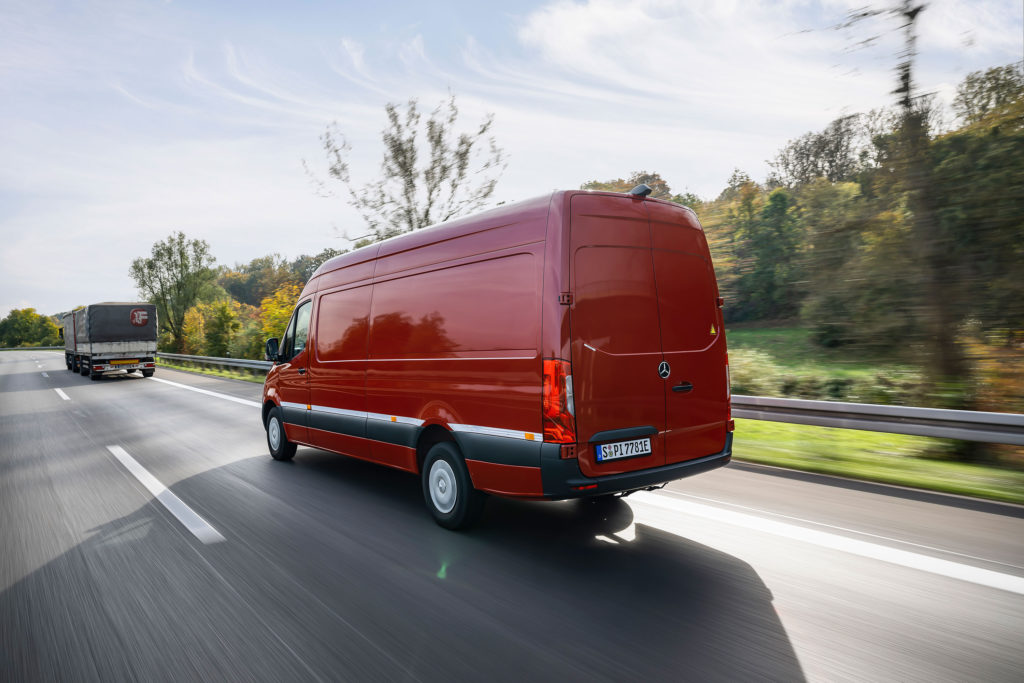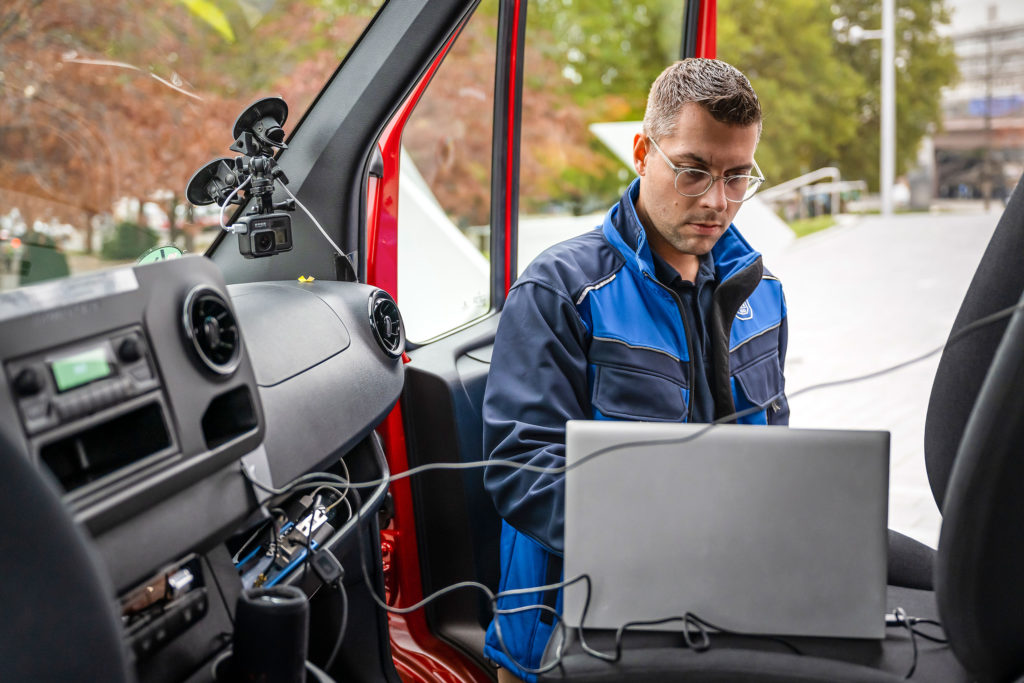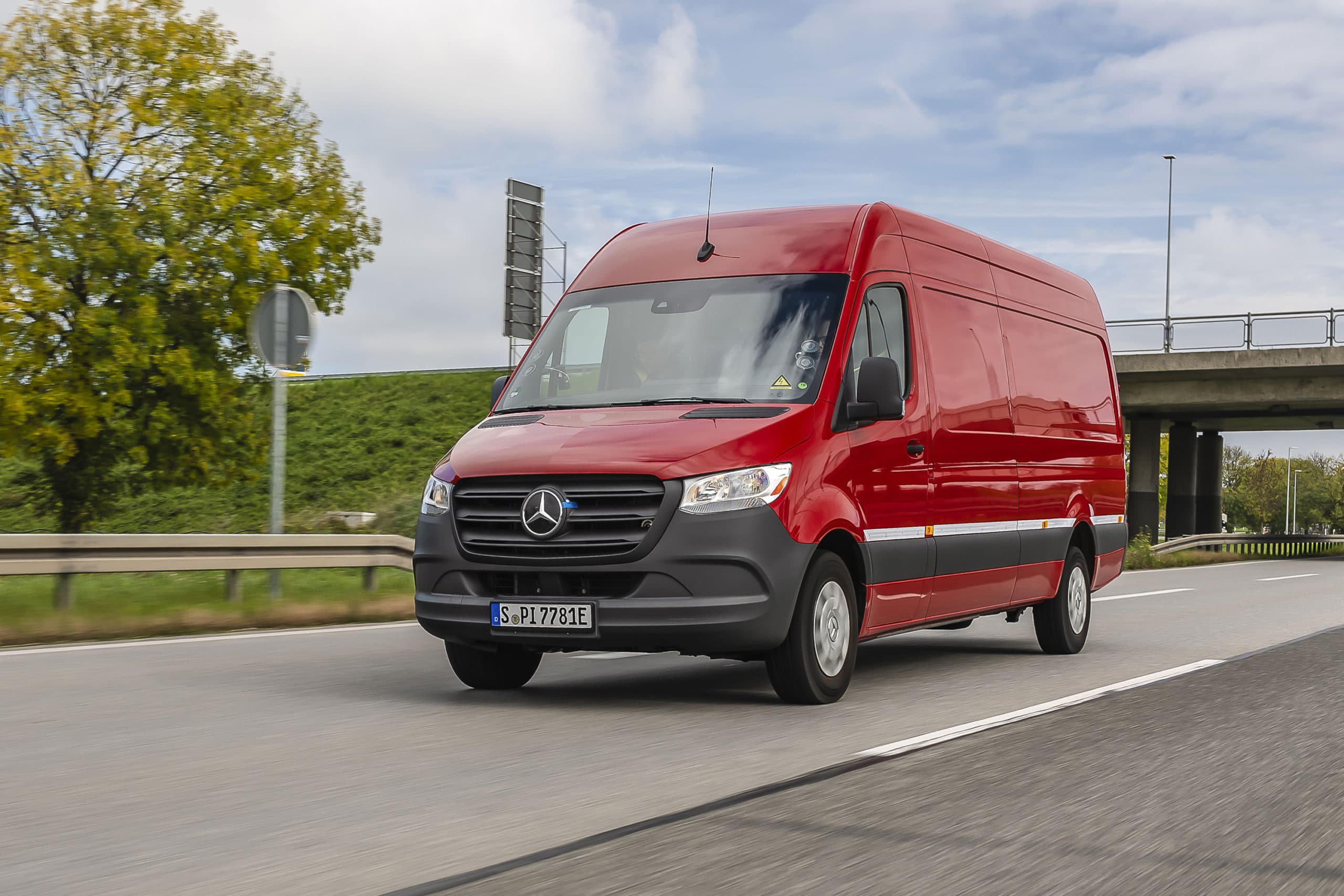Mercedes-Benz is developing a new version of its all-electric eSprinter. The battery-powered van is set to officially debut early next year, but in the lead up to this unveiling, the German automaker announced on Wednesday that it subjected a prototype eSprinter to a demanding real-world range test, driving from Stuttgart to Munich and back again. The distance covered was 475 kilometers, nearly 300 mostly highway miles that included plenty of elevation change, going from about 689 feet above sea level to 2,575. Impressively, the van completed this trip without needing to be recharged.
During testing, the eSprinter consumed 21.9 kilowatt-hours of power per 100 kilometers, which works out to around 2.8 miles per kWh. This performance was confirmed by TÜV Süd, a technical inspection organization. They had a representative in the passenger seat next to the test driver to ensure everything was on the up and up.

When it becomes available, the redesigned eSprinter will feature three different battery capacities. Not surprisingly, the van that underwent this testing was fitted with the largest pack, though it also had an extra-long body and a high roof, making the drive more demanding because of additional wind resistance. In addition to various battery sizes, the eSprinter will be offered with plenty of different body variations, from panel van to chassis cab configurations, meaning the vehicle can be tailored to meet specific customer needs. Additionally, for the first time this all-electric vehicle will be offered in the US and Canada, not just Europe.
SEE ALSO: Harbinger aims to redefine medium-duty vehicle segment with new platform
When the prototype eSprinter returned to the Mercedes-Benz Museum, the road test’s starting location in Stuttgart, the instrument cluster indicated roughly another 12 miles of range remained in the battery. If the van drove about 295 miles on a charge and had a dozen miles of range left after the test, this means the large battery pack should offer around 307 miles of range on a single charge, which is impressive for a commercial vehicle of this size. The E-Transit, for instance, maxes out at a mere 126 miles, though Ford makes some strong arguments why that is more than enough for a commercial van. The high-roof, extended-length model only offers 108 miles of range.

The smaller battery packs should offer range that’s more in line with the E-Transit. Ford’s logic is that commercial customers do not want to pay for more range than they absolutely need. The automaker’s research shows that even at 126 miles on a charge, the E-Transit still fulfills the requirements of a vast number of its van customers.
The new eSprinter is still under development, with so don’t look for it at Mercedes-Benz dealerships just yet. The vehicle is, however, set to debut next February, so stay tuned for additional details in early 2023.
CHECK THIS OUT: BMW bolsters supply chain by investing in company that extracts copper from waste ore
In the coming years, Mercedes-Benz will also introduce a new vehicle architecture tailored specifically to commercial vehicles. The VAN.EA (Vans Electric Architecture) platform will underpin all midsize and large vans the automaker introduces. This newly developed architecture is expected to come out in 2025.

